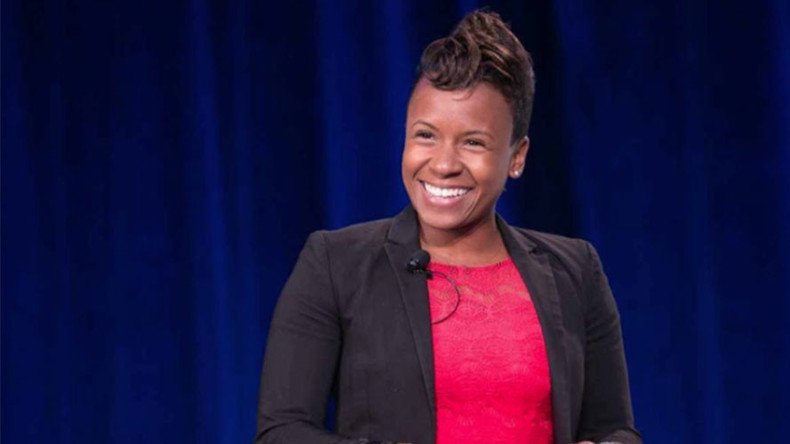Best ___ for the job: New app tries to swipe away hiring bias

The dating (and STD distribution) app Tinder may be about making quick judgments about people’s appearance, but a new tool inspired by it could make hiring discrimination a thing of the past and increase diversity in the workplace.
Blendoor, a new job matching app, aims to remove bias from the recruitment process by excluding identifying details such as name and photos, allowing employers to concentrate solely on qualifications beyond race, gender, or ethnic background and “swipe” when they’ve found a candidate they like.
It was developed by Stephanie Lampkin, who said she found it hard to get her foot in the door in the tech industry despite her Stanford and MIT education.
Blendoor claims the lack of female employees at tech firms isn’t due to a lack of suitable candidates, but rather to an unconscious bias.
Hey that's me! 😊 Thanks @lesbiantech for another awesome conference. #lwtsummit#weoutcheapic.twitter.com/IpMdcwpFhL
— Stephanie Lampkin (@stephaneurial) February 29, 2016
“Pattern matching [is] a natural cognitive response and its only normal that we want to be around people that look, act and sound like us,” the company said, claiming this bias is detrimental to companies as it significantly affects recruiting the best candidate.
Some women believe the bias is conscious – and in some cases, dangerous.
‘Elephant in the Valley,’ a recent survey of more than 200 women working in the tech industry with at least ten years of experience, found three of five of them reported unwanted sexual advances two-thirds of the time by a superior in the company. 90 percent of those questioned witnessed sexist behavior at “company offsites” or conferences.
So far, 19 tech firms have signed up for Blendoor, which will allow candidates to swipe for a job they like. If the recruiter thinks they are a good match, they can swipe back and initiate contact. Recruiters will only see information relevant to the job role.
“Our goal is to highlight the information that's most relevant to a candidate being a ‘good fit’ independent of race, gender, ability, military history or sexual orientation,” the company said on their website.
Percentage of women in tech roles, source CNET #RTpic.twitter.com/wBSfzRSphl
— Colm McGlinchey (@ColmMcGlinchey) March 10, 2016
Lampkin was inspired by the ‘blind’ audition process adopted by orchestras in the 1970s. A screen was placed between candidates and the jury while they played for the preliminary audition.
Research found this process made it 50 percent more likely that a woman would advance through the preliminary audition.
When the process was first adopted, the top five US orchestras had less than 5 percent female musicians. Today, they represent more than 30 percent.












